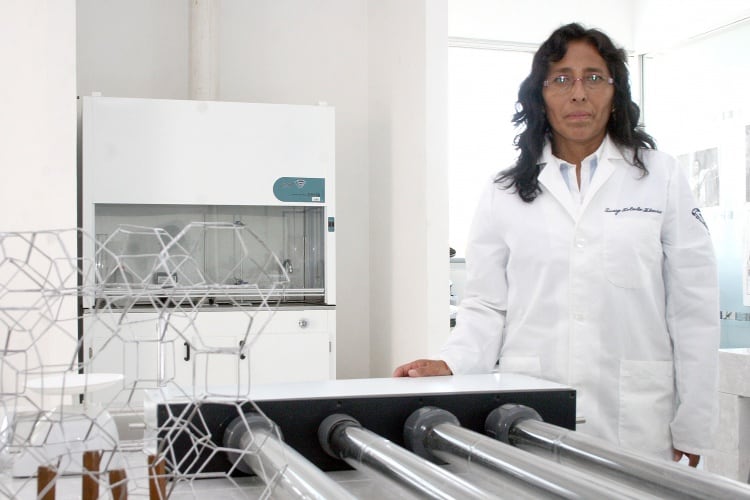Keeping food cool — in fact, keeping anything cool — in hot countries which lack infrastructure can be a difficult task. A Mexican researcher has now developed a refrigeration system which uses no environmentally-harmful substances and is powered by the sun, yet can keep water at 9°C for up to three months.

Developed by Susana Elvia Toledo Flores of the Zeolite Research Department at the Institute of Science of the Meritorious University of Puebla in Central Mexico, the device works by using zeolites — highly porous aluinoslilicates — to adsorb and desorb methanol in a solar-driven cycle.
During the day, the sun heats the zeolite, onto which methanol molecules are adsorbed. The heat drives the methanol off the zeolite and pushes it into a condenser, from where it flows into a storage tank. Overnight, the zeolite bed cools down, which decreases the vapour pressure of the methanol. The refrigerant in the storage tank runs into an evaporator where it turns into vapour, cooling the refrigerator; meanwhile, the vapour is readsorbed by the zeolite bed.
‘The system is not only designed to cool foods,’ Toledo Flores said. ‘It may also serve as air conditioning, for example, in areas without electricity. The system could adapt well to preserve foods and medicine, bringing a better quality of life.’
Her next goal is to use the system to maintain a stable temperature of 5°C, which is cold enough to preserve fish without denaturing its proteins.




Project to investigate hybrid approach to titanium manufacturing
What is this a hybrid of? Superplastic forming tends to be performed slowly as otherwise the behaviour is the hot creep that typifies hot...